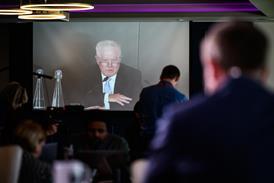Severely injured people often feel unfairly treated by the legal system and are left unsatisfied with the outcome of their claim, a new survey has revealed.
The Spinal Injuries Association polled 136 victims who had made a claim after a catastrophic injury, with two in five saying they were unfairly treated.
Many were upset at the apparent lack of power and influence over the decision-making process, while others complained the legal process was not open, transparent and straight with their interests at heart. There were also complaints about levels of knowledge of their legal team and questions why liability could not be accepted when, for them, it seemed an obvious outcome.
Nearly every respondent wanted the process to be quicker and they could not understand why their case had taken so long.
‘The injury and legal claims process parachutes people who have had total control over their lives overnight into a very alien world,’ said SIA chief executive Sue Browning.
‘The research was clear - it’s time that the system was more compassionate to their situation and put the needs of these vulnerable people centre stage.’
The survey found one-third of victims considered the assessment and support of their needs had been poor. Just 53% had received an interim settlement, which fell to 33% when the claim was against the NHS for clinical negligence.
One in four respondents had no confidence that the compensation they received would meet their lifetime needs.
Victims said in many cases their life was ‘on hold’ while they waited years for a resolution to their claim: in one example a paralysed man described having to ‘camp out’ in his mother’s dining room for seven years without access to a bathroom, kitchen or running water.
Browing said there was a ‘clear divide’ between respondents who were happy with their claim because their legal team was knowledgeable, experienced and communicative, and those who felt their lawyers lacked these qualities.
‘Many say that the legal experience forced them to face up to the reality of their new unknown in a complex world where they felt at their most vulnerable,’ she said.
‘Spinal cord injury not only leaves people paralysed but it affects all their bodily systems below the level of the injury, so it requires a great deal of practical, psychological and physical adjustment and tragically, they say that the length of the legal process prevents them from being able to come to terms with this and move on.
‘It’s worse for those not receiving interim payments which they describe as their ‘life changer’ in order to get their homes and lives adapted to meet their needs.’
The full results of the survey are being analysed and will be shared with lawyers once lessons are fully understood.
The issue of compensation for serious injuries, as well as the system for processing claims against the NHS, have both become talking points in recent years.
The discount rate, which deducts a percentage from compensation awards based on prospects of investing the money, was changed earlier this year from 2.5% to -0.75%. Claimant groups said this ensured victims are no longer under-compensated.
Meanwhile, the NHS Litigation Authority has been rebranded as NHS Resolution has vowed to improve the way it handles and settles cases.



























15 Readers' comments